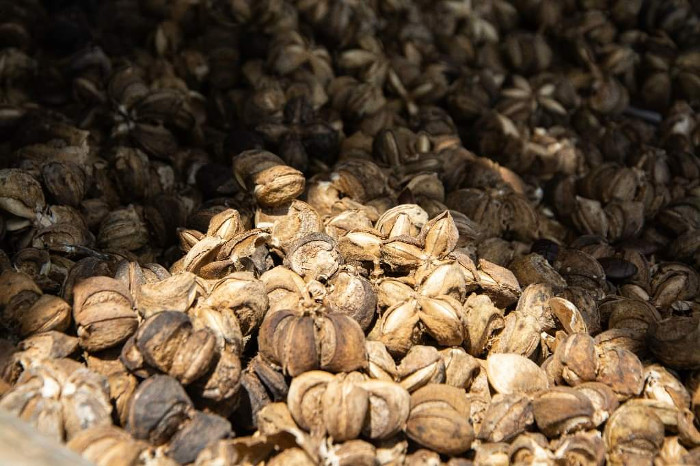HAVANA.- Cuban, Costa Rican and Peruvian researchers promote the introduction into the productive practice of the country of Sacha Inchi, a generally climbing or liana plant and producer of peanuts rich in its vegetable oil.
The Cuban Academy of Sciences reported in its evaluation that it constitutes a scientific contribution to its cultivation and processing in Cuba for several years, especially the design of the planting value chain, explaining that it is one of its 2022 national awards to the results of scientific research.
The Academy appreciated that the latter is an unprecedented fact under current conditions and demonstrates that its production is feasible and sustainable on agroecological bases.
Its technology stands out for the extraction of oil from Sacha Inchi seeds and for the encapsulation of the oil in soft casings, which allows for the first time in Cuba to have a nutraceutical rich in omega 3, 6 and 9 fatty acids of vegetable origin, he added.
According to the Cuban Academy of Sciences, the characterization of the product was also achieved with valid methods, including composition studies, acute oral toxicity, effects on oxidative stress, liver damage, and lipid profile in experimental animals.
In addition, its chemical determination to obtain a food supplement enriched with the residual cake of Sacha Inchi, which has the Certificate of Trademark Registration, Sanitary License of the Sierra Maestra Science, Technology and Innovation Entity, and the Production and Registration .
Its results have been widely disseminated in the national and international scientific community through participation in 11 events, Thesis presented as an option for the Master's degree in Pharmacology, a Provincial Award for Technological Innovation 2021 and it is partially introduced in eight Cuban provinces.
A group of centers are its main executors, among them the Research Center for Protein Plants and Bionatural Products, the Center for Scientific Research, the National Center for Agricultural Health, the Center for Genetic Engineering and Biotechnology; and Agribusiness Costa Rica.
Also the Institutes of Animal Science, Plant Health Research, the Research of Derivatives of Sugar Cane and the Research of the Peruvian Amazon, in Peru.
The plant in question was defined for the first time in 1753 by the naturalist Linnaeus in the Peruvian Amazon and its name derives from two Quechua words: sacha, which means wild, and inchi, whose term refers to the peanut it produces.
Translated by Linet Acuña Quilez



